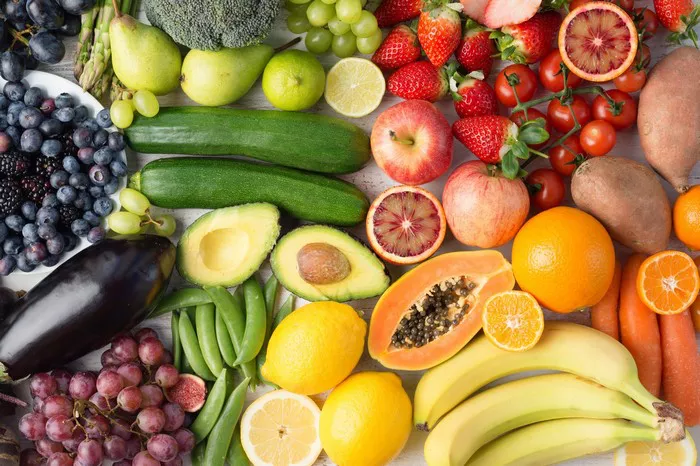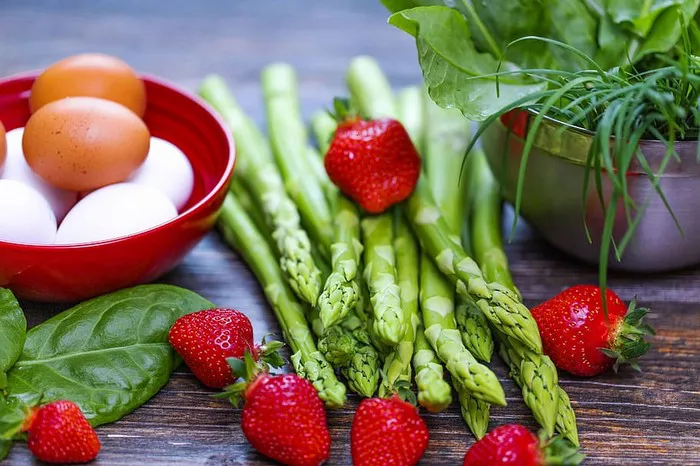Inflammation is a natural response of the body to protect itself from harmful stimuli. However, chronic inflammation can lead to various health issues, including heart disease, arthritis, and even cancer. One significant factor influencing chronic inflammation is our diet. The foods we consume play a pivotal role in either promoting or reducing inflammation. In this article, we will delve into the 10 worst foods for inflammation, providing detailed insights and suggestions on how to make healthier dietary choices.
1. Sugary Treats: The Sweet Culprits
Sugar is a known pro-inflammatory agent. Foods and beverages high in added sugars can trigger inflammation in the body.
Suggestion: Opt for natural sweeteners like honey or maple syrup in moderation, and cut back on sugary snacks and sodas.
2. Trans-Fats: The Sneaky Inflammation Triggers
Trans-fats, commonly found in fried and processed foods, can raise inflammatory markers in the body.
Suggestion: Check food labels and avoid products containing hydrogenated oils. Choose healthier cooking methods like grilling or baking.
3. Refined Grains: The Not-So-Healthy Carbs
Foods made from refined grains, such as white bread and pasta, can spike blood sugar levels and lead to inflammation.
Suggestion: Opt for whole grains like brown rice, quinoa, and whole wheat bread for a healthier alternative.
4. Processed Meats: The Culprits Behind Inflammation
Processed meats like sausages, hot dogs, and bacon contain additives and preservatives that may promote inflammation.
Suggestion: Choose lean cuts of unprocessed meat or explore plant-based protein sources like beans and lentils.
5. Artificial Trans-Fats: The Hidden Danger
Artificial trans-fats, often found in margarine and some packaged snacks, are linked to inflammation and heart disease.
Suggestion: Read labels carefully and avoid products with “partially hydrogenated oils.”
6. High-Sodium Foods: The Salted Offenders
Consuming excessive sodium can lead to water retention and high blood pressure, both of which can trigger inflammation.
Suggestion: Limit your salt intake and season your meals with herbs and spices instead.
7. Soda and Sugary Beverages: The Liquid Inflammation
Sugary drinks like soda and fruit juices can cause blood sugar spikes and contribute to inflammation.
Suggestion: Opt for water, herbal tea, or unsweetened beverages to stay hydrated without the added sugar.
8. Artificial Sweeteners: The Deceptive Choices
Some artificial sweeteners, though low in calories, may disrupt gut health and promote inflammation.
Suggestion: If you need a sugar substitute, consider using stevia or monk fruit extract.
9. Dairy Products: The Trigger for Some
While dairy can be a healthy choice for many, some individuals may experience inflammation due to lactose intolerance or dairy allergies.
Suggestion: If dairy causes discomfort, explore lactose-free or plant-based alternatives.
10. Fried Foods: The Greasy Culprits
Fried foods are often high in unhealthy fats, which can exacerbate inflammation.
Suggestion: Choose grilled, baked, or air-fried options for your favorite dishes to reduce the intake of inflammatory fats.
In conclusion, understanding the impact of our food choices on inflammation is crucial for maintaining good health. By avoiding these 10 worst foods for inflammation and making more mindful dietary decisions, you can help your body reduce chronic inflammation and lower the risk of associated health conditions.
FAQs about inflammatory foods :
1. What are inflammatory foods?
Inflammatory foods are those that can trigger an inflammatory response in the body. This means they may cause an increase in inflammation, which can contribute to various health issues, including chronic diseases.
2. What are some common inflammatory foods?
Common inflammatory foods include processed foods high in sugar, trans fats, and artificial additives. Other culprits can be foods with high levels of saturated fats, refined carbohydrates, and excessive sodium.
3. How does inflammation affect the body?
Inflammation is a natural response that helps the body heal and protect itself from injury and infection. However, chronic inflammation can harm healthy tissues and contribute to conditions like heart disease, arthritis, and even cancer.
4. Can certain foods help reduce inflammation?
Yes, some foods have anti-inflammatory properties and can help reduce inflammation in the body. These include fruits, vegetables, whole grains, fatty fish (like salmon and mackerel), nuts, and seeds. They are rich in antioxidants and omega-3 fatty acids, which have anti-inflammatory effects.
5. What is the link between diet and inflammation?
Diet plays a significant role in inflammation. A diet high in inflammatory foods can contribute to chronic inflammation, while a diet rich in anti-inflammatory foods can help reduce it. It’s essential to maintain a balanced and nutritious diet to support overall health and reduce inflammation.
6. Are there specific diets that focus on reducing inflammation?
Yes, several diets emphasize reducing inflammation, such as the Mediterranean diet and the anti-inflammatory diet. These diets prioritize foods like fruits, vegetables, whole grains, lean proteins, and healthy fats while limiting processed foods, sugar, and saturated fats.
7. Can reducing inflammatory foods improve health conditions?
For some individuals, making dietary changes that reduce inflammatory foods can lead to improvements in health conditions related to chronic inflammation, such as arthritis, heart disease, and certain autoimmune diseases. However, it’s crucial to consult with a healthcare professional for personalized guidance.
8. How can I identify and avoid inflammatory foods?
To identify and avoid inflammatory foods, read food labels carefully, choose whole, unprocessed foods over packaged ones, limit sugar and saturated fat intake, and opt for healthier cooking methods like grilling or baking instead of frying.
9. What are some tips for an anti-inflammatory diet?
Tips for an anti-inflammatory diet include:
- Eating a variety of colorful fruits and vegetables.
- Incorporating fatty fish rich in omega-3s.
- Using olive oil as the primary cooking oil.
- Reducing or eliminating processed foods and sugary drinks.
- Moderating alcohol consumption.
- Staying hydrated with water and herbal teas.
10. How long does it take to see the effects of an anti-inflammatory diet?
The time it takes to see the effects of an anti-inflammatory diet can vary from person to person. Some may notice improvements in a few weeks, while others may take longer. Consistency in dietary choices and lifestyle factors plays a significant role in the timeline of results.
























